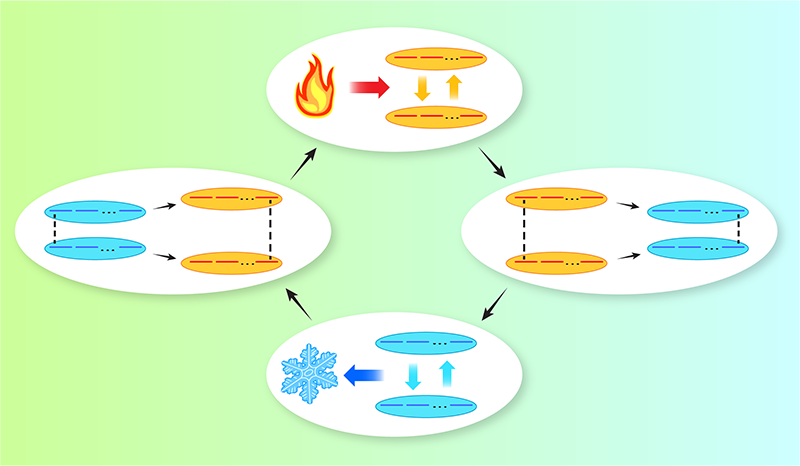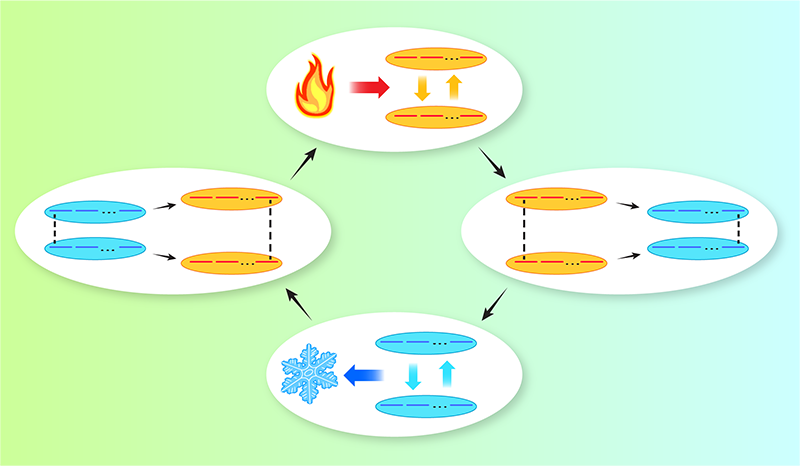Quantum Coherence Reduces Friction in Quantum Heat Engines
Without the ability of quantum states to maintain their entanglement and superposition under external forcing, quantum technologies that outperform their classical counterparts would be a pipe dream. But while researchers know that this quantum coherence is key to the operation of quantum sensors and quantum information systems, for example, it is less clear how it might affect thermodynamic devices, such as quantum heat engines. Now, Hiroyasu Tajima of the University of Electro-Communications and Ken Funo of the RIKEN Cluster for Pioneering Research, both in Japan, have taken a step toward answering that question by looking at how quantum coherence influences “friction” in a quantum heat engine [1]. Tajima and Funo say that the results could help researchers build future quantum heat engines that are more powerful and efficient than current classical engines. These quantum engines might be used to cool down quantum systems or to transport energy in nanoscale devices.
A heat engine generates power from the heat flow between hot and cold reservoirs. First, the engine connects to the hot reservoir, absorbing heat, then it connects to the cold reservoir, releasing that heat. Then the cycle repeats. The engine’s efficiency depends on the rate of this process, with faster cycles dissipating more energy through friction. A classical engine could achieve the maximum efficiency only if its cycles were infinitely slow.
Tajima and Funo predict that the prospects are better for a quantum heat engine, however. Here, the quantum equivalent of friction—an entropy increase associated with the absorption and release of heat—can be completely eliminated if the engine contains enough quantum coherence. This “quantum lubrication” leads to “superconducting,” dissipationless flow of heat during fast engine cycles, allowing the engine to achieve its maximum efficiency under these operating conditions—something that isn’t possible for classical engines.
–Katherine Wright
Katherine Wright is the Deputy Editor of Physics Magazine.
References
- H. Tajima and K. Funo, “Superconducting-like heat current: Effective cancellation of current-dissipation trade-off by quantum coherence,” Phys. Rev. Lett. 127, 190604 (2021).





